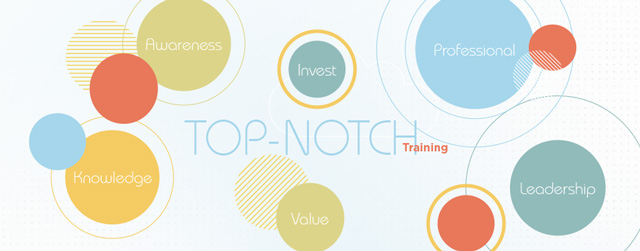
In addition to ensuring knowledgeable and well-trained technicians work on the aircraft our customers have entrusted to us, Duncan Aviation is committed to providing a safe work environment for its team members. Toward those ends, Duncan Aviation invests in training—nearly 20 hours of training per team member per year.
“Our budget for this training covers everything from showing team members how to properly fit and use a respirator to teaching techs how to fix certain engine models,” says Professional Development Team (PDT) Manager Lance Odom.
Duncan Aviation’s PDT devotes a significant portion of its budget to enhancing team members’ technical skills. Some training fulfills mandates set by the Occupational Safety and Health Administration (OSHA), the Federal Aviation Administration (FAA) and the European Aviation Safety Agency (EASA). Other training in this area meets and exceeds requirements established by service agreements and contracts Duncan Aviation has with aircraft manufacturers and customers.
For example, Airframe Tech II Mike Trebelhorn went to Dallas, Texas, earlier this year for two weeks of Learjet 60 training. Mike’s team leader, Fred Most, believes training adds value on many levels.
“Training boosts the morale of the entire team and shows our customers that we have the Learjet training necessary to work on their aircraft,” says Fred. “Investing in our team members, especially our younger techs, is so meaningful. It tells the team and the tech that Duncan Aviation cares about us and our work, that the company is willing to invest this time and money in us to add value to our team. It helps team members buy in and gives our customer confidence in our abilities.”
Lance explains that very little production time is lost to training. “We make sure everyone who needs it gets the required classroom time, but we don’t take folks off the floor for more than an average of one percent of their total time,” says Lance. “We’re committed to ensuring that our highly skilled team members maintain their certification and receive the training they need, and we’re also determined to honor the deadlines and delivery dates we promise our customers.”
Duncan Aviation team members are encouraged to explore classes designed for professional growth. Internally, the classes are taught by Duncan Aviation’s senior management team, professional development team or Human Resource specialists. Other courses are self-paced and available online through the company’s computer system. Externally, courses are also provided through partnerships with organizations, such as Kaplan University, Southeast Community College, FlightSafety and Global Jet Services.
Human Resources and PDT specialists teach classes to raise team members’ awareness of cultural differences (Communicating Across Cultures), hone communication skills (Crucial Conversations) and calmly deal with potentially dicey situations (Performance Documentation & Progressive Discipline and Legal Issues).
Emergenetics and Leadership Dynamics are two in-depth classes taught and supported by the senior managers at Duncan Aviation. These classes promote a greater understanding of oneself and others throughout the company. Although people with many personality types work at Duncan Aviation, team members are often highly structured and tend to think analytically. Leadership classes promote an understanding of different leadership styles and show how to harness those styles to effectively motivate and empower the various personality types of team members. Excerpts from these classes were presented by Duncan Aviation at last year’s NBAA convention.
Full-time team members who have been at the company for one year or more may also qualify for up to $2,500 in tuition reimbursement annually. Qualifying classes need to apply toward a college degree and pertain to a team member’s job. Duncan Aviation also reimburses up to $3,000 for the cost of a private pilot license or instrument rating. Each year, Duncan Aviation spends about $90,000 to reimburse team members pursuing degree-based classes and pilot licenses.
Through training, Duncan Aviation maintains compliance with various government agencies. However, training confers other, less quantifiable benefits on the organization, too, by helping team members feel more engaged and invested in. The company firmly believes that engaged employees will provide the best customer service and work hard to meet customer requests and needs.
“It’s important that team members feel valued and take pride in their roles at Duncan Aviation, and investing in their professional growth is a way we can build and foster those feelings,” says Lance. “We believe this is something that has a direct effect on the customer.”